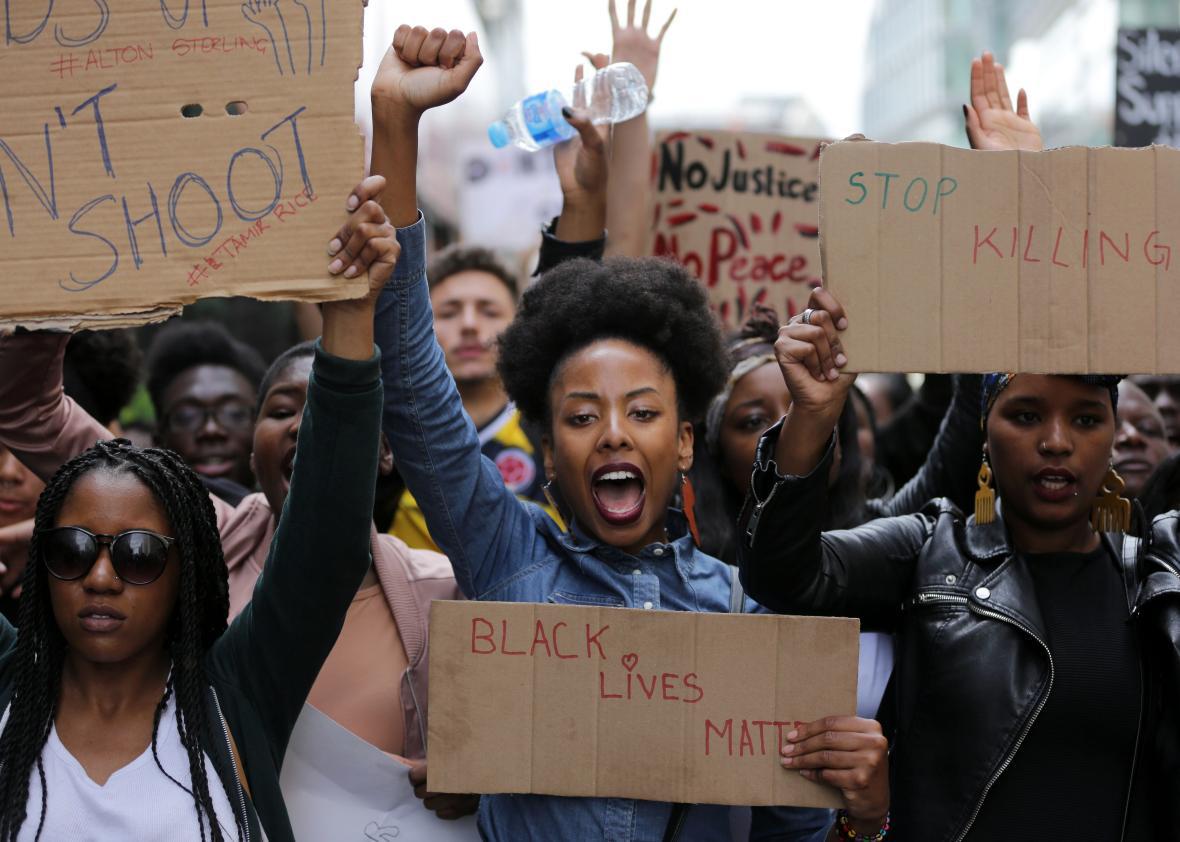Hundreds of thousands of people sit in jail right now because they cannot afford to post bail. They have not been convicted of a crime. If they had money, they would be allowed to walk free while they awaited their day in court. Because they are poor, however, they remain behind bars for months or even years, unable to work, to walk down the street, or to participate in the daily rhythms of family life. Nationally, 62 percent of the people in jail are there because they cannot afford bail.
This Mother’s Day, at least 30 women will be freed thanks to the Black Lives Matter movement. A coalition of 25 black-led organizations has raised more than $250,000 to pay for the release of “black mamas” being held while they await trial—to “buy each others’ freedom,” Atlanta organizer Mary Hooks tells the Nation. Mama’s Bail Out Day, as organizers have named the effort, will free women from more than a dozen jails in places including Houston, Minneapolis, and Los Angeles. Many of them are being held for minor offenses like loitering or possessing small amounts of drugs.
Women make up a minority of people in the criminal justice system, but they face economic disadvantages that often make it harder for them to leave once they end up there. Almost half of all single black and Latina women have a net wealth of zero or less. Once arrested, defendants face not just bail fees (often set without consideration for ability to pay), but public defender application fees, electronic monitoring fees if they’re released, and fees and surcharges to participate in payment plans if they can’t afford to pay a lump sum. About 70 percent of female offenders are mothers, and the majority of them are single mothers, which makes an extended jail stay more immediately disruptive to their children than the typical man’s confinement. A report last year that found women in local jails make up the fastest growing demographic in the correctional system.
Mama’s Bail Out Day is part of a larger conversation about how bail requirements disproportionately hurt the poor. That movement has received momentum from several high-profile cases, including one in which a teenager named Kalief Browder was held at Rikers Island for three years, almost two of them in solitary confinement, because his family could not afford the $3,000 bail. His robbery charges were eventually dismissed, but Browder hung himself two years after his release.
In a few places, the outrage is turning into policy change. In New Jersey, the state constitution was amended effective this year to nearly eliminate cash bail. Several jurisdictions in Mississippi ended “pay or stay” bail policies last year. Elsewhere, people who have been arrested and held in jail have long been released on the simple promise to return. “There is no evidence you need money to get people back to court,” one long-time superior court judge told the Washington Post last year. “It’s irrational, ineffective, unsafe and profoundly unfair.” Washington, D.C. has released defendants without bail for decades now.
Paying individual women’s bail doesn’t fix the two-tiered criminal justice system that keeps thousands of men and women in jail because they are too poor to leave. “We have to be doing that,” organizer Marbre Stahly-Butts told the Nation. “But we also can be collecting our resources to make a direct impact on the material conditions of our people who are in cages right now.” The bailouts are scheduled to start happening on Thursday, with Mother’s Day celebrations happening Sunday in cities including Atlanta. Organizers are continuing to raise money for more bailouts, including a potential Father’s Day effort.
